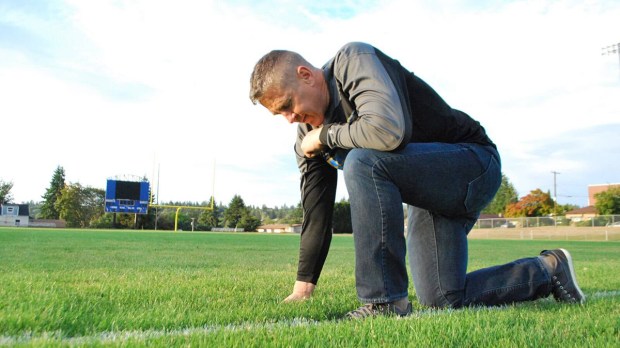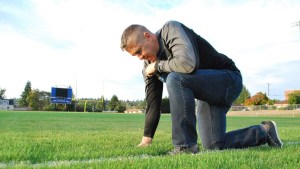The Supreme Court ruled on Monday that a Washington state school district violated a high school football coach’s First Amendment rights when it disciplined him for praying on the field after games.
In its 6-3 opinion, the court ruled that religious expression is protected by both the free exercise and free speech clauses of the First Amendment of the Constitution. Justice Neil Gorsuch delivered the opinion for the majority for the case, Kennedy v. Bremerton School District.
“The Constitution and the best of our traditions counsel mutual respect and tolerance, not censorship and suppression, for religious and nonreligious views alike,” Gorsuch wrote.
A coach sues to pray alone
The case involved Joseph Kennedy, a former Bremerton High School assistant football coach who was disciplined for praying on the 50-yard-line after games on the grounds that his actions might be seen as the school district’s endorsement of religion.
Kennedy’s post-game prayers began in 2008, when he would take a knee on the 50-yard-line to thank God after the game was over and the teams had already shaken hands. He was later joined by some of the team’s players. It wasn’t until years later, in 2015, when the school district notified him that he could not pray on the field. In their directive they told him to avoid any motivational “talks with students” that “include[d] religious expression, including prayer.”
After agreeing to the request to end the post-game prayers, the coach changed his mind, and through an attorney, said that he wished to continue the tradition privately because of “sincerely-held religious beliefs.” After a game in which he prayed silently on the field, and was joined by other adults, the district placed him on administrative leave, and later recommended against rehiring him.
Kennedy then sued the district for violating his First Amendment rights to free speech and free exercise of his faith. The U.S. Supreme Court agreed to hear the case after Kennedy lost in the lower courts.
First amendment’s double-protection for religious expression
In its opinion, the Supreme Court justices emphasized that the Founders did not write the First Amendment to eliminate religious expression, but to protect it.
“Respect for religious expressions is indispensable to life in a free and diverse Republic—whether those expressions take place in a sanctuary or on a field, and whether they manifest through the spoken word or a bowed head,” read the opinion.
“Here, a government entity sought to punish an individual for engaging in a brief, quiet, personal religious observance doubly protected by the Free Exercise and Free Speech Clauses of the First Amendment. And the only meaningful justification the government offered for its reprisal rested on a mistaken view that it had a duty to ferret out and suppress religious observances even as it allows comparable secular speech,” it continued. “The Constitution neither mandates nor tolerates that kind of discrimination. Mr. Kennedy is entitled to summary judgment on his First Amendment claims.”
Coach’s prayer likened to wearing a yarmulke to school
The court ruled that the school district’s prohibition against the coach’s private, non-coercive prayer session, if applied in all instances would have a repressive effect on all religious expression.
“Rather than respect the First Amendment’s double protection for religious expression, it would have us preference secular activity. Not only could schools fire teachers for praying quietly over their lunch, for wearing a yarmulke to school, or for offering a midday prayer during a break before practice. Under the District’s rule, a school would be required to do so,” Gorsuch wrote.


